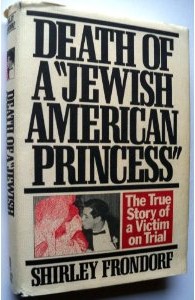
by Tara Bognar
Enough with stereotypes
 The media coverage and commentary immediately following Sam Friedlander’s murder of his wife Amy and their two children included a disturbing level of victim-blaming:
The media coverage and commentary immediately following Sam Friedlander’s murder of his wife Amy and their two children included a disturbing level of victim-blaming:
Michael Borg: “I have heard from him the abuse she put him through in terms of belittling and emasculating him in front of the kids and in front of friends.”
David Pine: “He looked like an emotionally beaten man… I can’t put a handle on why he would take the lives of his kids, but whatever it was was a result of years of emotional torment that he must have (gone) through in that household.”
A childhood acquaintance asked on his blog: “Did his wife’s remarks bring him back to a time when he really was a small person?
The problem of victim-blaming is sadly widespread, and three different local groups, Hope’s Door, My Sister’s Place and the Westchester Hispanic Coalition staged a rally to raise awareness of the issue.
But I think that the language used here points to a specifically Jewish problem. It strongly evokes certain stereotypes about Jewish women and men: the domineering, emasculating Jewish woman, and the meek, dominated Jewish man. Whoever Sam and Amy really were and however their relationship played out, these stock characters help mask the absurdity of the implication that Amy Friedlander was or even could have been morally responsible for her husband’s murderous actions.
I’ve heard Jews – women and men – defend their casual use and perpetuation of Jewish stereotypes, sometimes on the basis of their own painful personal experiences with actual people – smothering Jewish mothers, materialistic “J.A.P.s,” etc.
But the problem is that these stereotypes don’t end up hurting the (at least apparently) powerful women these defenders are thinking of, whichever formidable balabuste or socially aggressive ‘mean girl,’ they have in mind. At best, they may end up hurting the speakers themselves, as Alana Newhouse and Miriam Stone explore in a 2005 issue of Lilith.
Worse, they end up hurting the weak and vulnerable. In 1982, another Jewish husband, Steven Steinberg actually successfully defended himself against the charge of murdering his wife by depicting her as a “Jewish American Princess” whose spending habits somehow caused him to murder her in his sleep.
The stereotypes that we continue to deploy against each other protect abusers and exploiters, providing a ready-made distortion field that traps their victims, and the rest of us, into tropes that have little to do with reality.
That’s mean, destructive, intellectually dishonest, and very sad. I don’t know that we’ll ever know whether Sam Friedlander’s violence was the result of a tragic mental break or the culmination of a pattern of brutality. But trafficking in stereotypes doesn’t help anybody. If we can rather be reminded to be kinder with each other and more open to the nuanced and complex truths of each other’s lives, that would be better.